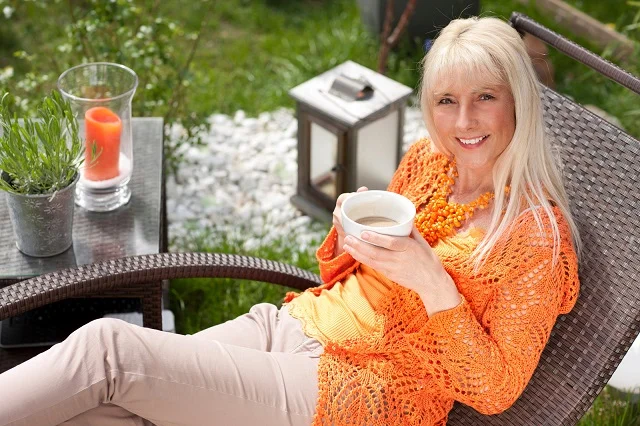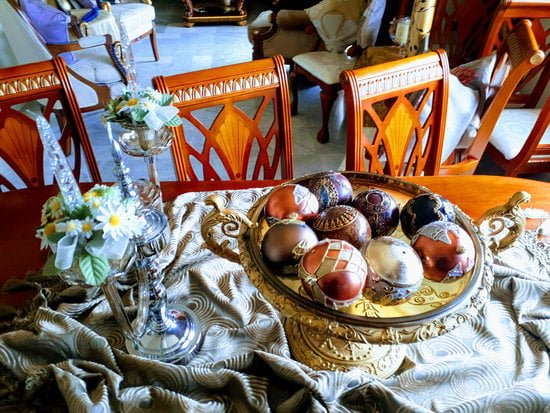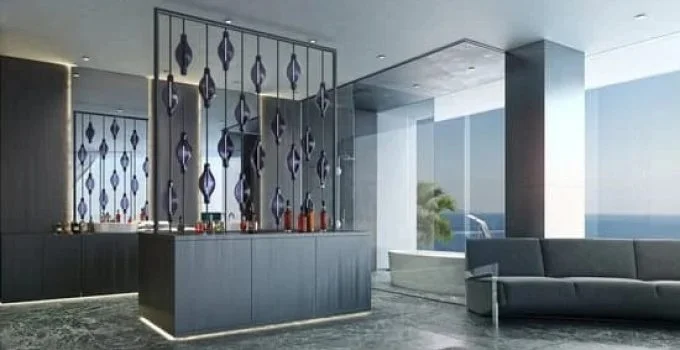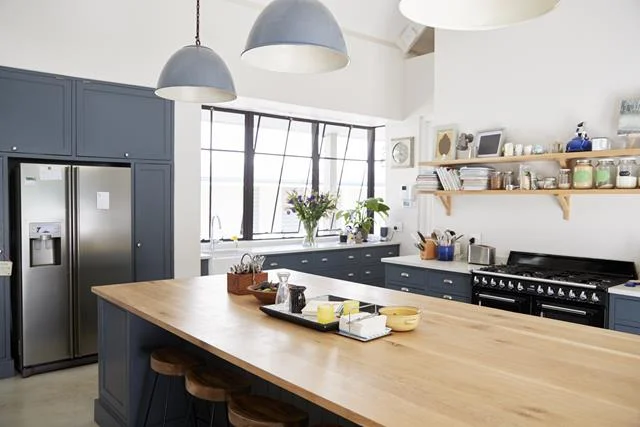Why am I obsessed with home decorating? This question may have crossed the minds of many individuals who find themselves constantly seeking new ideas to beautify their living spaces. In this article, we will delve into the psychology behind the urge to decorate our homes and explore how social media plays a significant role in fueling this obsession.
The phenomenon of home decorating obsession is not uncommon, as many people find joy and fulfillment in creating visually appealing and comfortable environments within their homes. Whether it’s through rearranging furniture, adding new décor pieces, or revamping entire rooms, the desire to enhance our living spaces runs deep for some individuals.
As we strive to understand why we are drawn to home decorating, it’s important to consider the psychological factors at play. Our living environments have a profound impact on our well-being, and the act of decorating can serve as a form of self-expression and creativity that brings us joy and satisfaction. Join us as we explore the underlying reasons behind this pervasive obsession and its effects on our mental health and overall happiness.
The Psychology Behind Home Decorating
The urge to beautify our living spaces goes beyond simply wanting a stylish or visually pleasing home. It is deeply rooted in the psychology of human behavior and well-being. Understanding the psychological factors behind our obsession with home decorating can provide insight into why we feel compelled to constantly update and improve our living environments.
One important psychological factor driving the urge to beautify our living spaces is the concept of “home as a reflection of self.” Many people view their homes as an extension of themselves, and the way they decorate and maintain their living spaces reflects their identity, values, and personal style. This desire for self-expression through home decor often fuels the obsession with constantly seeking new ways to enhance and beautify our surroundings.
Another psychological aspect that contributes to the obsession with home decorating is the impact of our environment on mood and well-being. Research has shown that our physical surroundings can have a significant influence on our mental and emotional state. A well-decorated and organized home can create a sense of comfort, security, and happiness, while a cluttered or visually unappealing space can lead to feelings of stress, anxiety, and unease.
Furthermore, the act of home decorating itself can be psychologically rewarding. The process of planning, designing, and creating a beautiful living space can provide a sense of accomplishment, satisfaction, and creative fulfillment. For many individuals, engaging in home decorating activities serves as a form of self-care and stress relief. Whether it’s arranging furniture, choosing color palettes, or adding personal touches, the act of beautifying our living spaces can be an enjoyable and therapeutic experience.
- Home as a reflection of self
- Impact of environment on mood
- Psychological rewards of decorating
How Social Media Influences Our Obsession With Home Decorating
The Visual Appeal of Pinterest and Instagram
Social media platforms like Pinterest and Instagram play a significant role in fueling our obsession with home decorating. These platforms are visual-centric, making it easy for users to discover and save inspiring images of beautiful interiors, furnishings, and decor. The endless stream of aesthetically pleasing photos on these platforms can lead to a constant desire for new home decorating ideas and inspiration.
Moreover, the “pinning” and “liking” functions on Pinterest and Instagram allow users to curate their own digital collections of home decor inspiration. This curated content creates a never-ending cycle of aspiration, as users strive to replicate or improve upon the beautiful spaces they encounter on social media.
The Influence of Home Design Blogs
Home design blogs also play a crucial role in influencing our obsession with home decorating. These blogs often feature before-and-after transformations, DIY projects, product recommendations, and expert tips, providing readers with a wealth of information and inspiration for enhancing their living spaces.
Additionally, many home design bloggers have cultivated large followings on social media platforms, further amplifying the impact of their content. Their ability to showcase their personal style and unique approach to home decor can deeply resonate with audiences, perpetuating the desire to constantly update and beautify one’s own living space.
Cultivating Unattainable Standards
While social media undoubtedly provides a valuable platform for sharing creativity and inspiration, it can also cultivate unattainable standards for home decorating. The carefully curated nature of social media posts may create unrealistic expectations or feelings of inadequacy among individuals who compare their own homes to the seemingly flawless spaces showcased online. It is essential for users to approach social media with a critical eye, maintaining perspective on what is achievable within their own means and living situations.
The Impact of Home Environment on Mental Health
Creating a Positive Atmosphere
Our home environment has a significant impact on our mental health and emotional well-being. The aesthetics, organization, and overall feel of our living spaces can either contribute to a positive atmosphere or lead to feelings of stress and anxiety.
Studies have shown that individuals who live in aesthetically pleasing homes tend to experience lower levels of cortisol, the stress hormone. Creating a beautiful home can involve anything from incorporating natural elements like plants and sunlight to decluttering and maintaining a clean, tidy space.
Enhancing Comfort and Relaxation
A beautifully decorated home can also enhance comfort and relaxation, which are essential for maintaining good mental health. Soft, cozy furnishings, soothing color schemes, and thoughtful layout design can all contribute to creating a space that is conducive to relaxation. When we feel comfortable in our own homes, we are more likely to experience a sense of calm and tranquility, which can have a positive impact on our emotional well-being.
The Importance of Personalization
Personalizing our living spaces allows us to express ourselves and create an environment that resonates with our individual preferences and personality. This sense of personalization can lead to increased feelings of satisfaction with our living situation, promoting a greater sense of contentment and happiness. Whether it’s displaying cherished mementos, choosing decor that reflects our interests, or incorporating artwork that holds special meaning, the act of personalizing our homes can contribute to improved mental health.
The Economic and Social Implications of Home Decorating
The home decor industry has experienced significant growth in recent years, and much of this can be attributed to the consumer obsession with home decorating. This phenomenon has not only had economic implications but also social ones. Here are some key points to consider:
- Consumer Spending: The obsession with home decorating has led to an increase in consumer spending on home decor items and furnishings. People are willing to invest in making their living spaces more aesthetically pleasing, contributing to the overall economy.
- Job Creation: The demand for home decor products has led to job creation within the industry. From designers and manufacturers to retail workers and online sellers, there is a growing need for skilled individuals to meet the demands of consumers.
- Trends and Influences: The consumer obsession with home decorating has also influenced trends within the industry. Home decor companies are constantly innovating and developing new products to cater to the evolving tastes of consumers, further driving economic growth.
On a social level, the obsession with home decorating has fostered a sense of community and creativity among individuals who share this passion. Social media platforms such as Pinterest and Instagram have become hubs for sharing home decor ideas and inspiration, allowing people to connect with others who have similar interests.
Furthermore, the emphasis on creating beautiful living spaces has also sparked conversations about sustainability and ethical consumption within the home decor industry. Consumers are becoming more conscious of the environmental impact of their purchases, leading to a shift towards eco-friendly and ethically sourced home decor products. This awareness is not only shaping consumer behavior but also influencing the practices of businesses within the industry.
Finding Balance
It’s no secret that home decorating can become an all-consuming passion for many individuals. The desire to create a beautiful and aesthetically pleasing living space is often driven by the need for comfort, self-expression, and a sense of pride in one’s surroundings.
However, there comes a point when this passion can turn into an unhealthy obsession. When the pursuit of the perfect decor begins to negatively impact other aspects of life, it may be time to reevaluate one’s priorities.
For some people, home decorating obsession may lead to financial strain as they continuously splurge on new furnishings and decor items. Others may find themselves spending excessive amounts of time and energy on constantly rearranging and redecorating their homes, neglecting other important responsibilities in the process. In some cases, this obsessive behavior can even strain relationships with family and friends who may not understand or share the same level of enthusiasm for home decor.
Finding balance is crucial when it comes to managing a home decorating obsession. It’s important to recognize when this interest begins to interfere with daily life and take steps to address any underlying issues.
This could involve setting a budget for decor purchases, seeking support from loved ones, or even considering professional help if the obsession has escalated to a point where it’s impacting overall well-being. Ultimately, finding equilibrium between enjoying home decorating as a hobby and maintaining a healthy lifestyle is essential for long-term happiness and fulfillment.
Practical Tips for Channeling Home Decorating Obsession in a Healthy and Productive Manner
For individuals who find themselves consumed by the world of home decorating, it is important to find ways to channel this passion in a healthy and productive manner. One effective strategy is to set boundaries and establish a budget for your decor projects.
This can prevent overspending and help you prioritize which areas of your home are most in need of attention. Additionally, consider tackling one room or project at a time to avoid feeling overwhelmed by the scope of the decorating process.
Another practical tip is to seek inspiration from sustainable and eco-friendly home decor options. Embracing environmentally conscious choices not only benefits the planet, but also encourages a more mindful approach to decorating. Look for items made from natural materials, shop from local artisans, or explore vintage and thrifted pieces. Incorporating sustainability into your home decor can add an extra layer of meaning to your design choices.
Furthermore, finding a sense of community can be beneficial for those obsessed with home decorating. Consider joining local or online groups dedicated to decor enthusiasts, where you can share ideas, seek advice, and connect with like-minded individuals. Engaging in discussions about home decorating can provide a sense of camaraderie and support as you navigate your passion for beautifying living spaces.
| Practical Home Decorating Tips | Benefits |
|---|---|
| Set boundaries and establish a budget | Prevents overspending and prioritizes decor projects |
| Seek inspiration from sustainable options | Promotes environmentally conscious choices and adds meaning to design |
| Join decor enthusiast groups | Provides support, advice, and sense of community |
Conclusion
In conclusion, our obsession with home decorating is a multi-faceted phenomenon that is influenced by a variety of psychological, social, and economic factors. As we have explored the psychology behind the urge to beautify our living spaces, it becomes clear that there is a deep-seated human need to create environments that reflect our personal identities and provide a sense of comfort and security.
The prevalence of social media, particularly platforms like Pinterest, Instagram, and home design blogs, has only served to fuel this obsession by providing endless inspiration and ideas for home decor.
Furthermore, research has shown a strong connection between the home environment and mental health, highlighting the importance of creating beautiful and functional spaces for emotional well-being. However, while home decorating can bring joy and fulfillment, it’s important to recognize when an obsession with it becomes problematic. Finding balance is key, as excessive focus on home decor can lead to financial strain or detract from other important aspects of life.
Ultimately, embracing and understanding our passion for home decorating means finding ways to channel it in a healthy and productive manner. Whether it’s through DIY projects, creative expression, or simply enjoying the process of making our homes beautiful, we can find fulfillment in this passion while also prioritizing overall well-being.
By acknowledging the impact of social media, maintaining balance in our pursuits, and seeking practical tips for healthy obsession management (such as setting budgets or creating designated decorating times), we can fully embrace our love for home decorating without letting it consume us.
Frequently Asked Questions
Why Do People Love Home Décor?
People love home decor because it allows them to create a space that reflects their personal style and tastes. Decorating their homes gives them the opportunity to express themselves and create a comfortable, inviting environment for themselves and their loved ones.
It also allows them to showcase their creativity and design skills in a space they spend a lot of time in.
Why Do I Love Interior Design So Much?
I love interior design so much because it allows me to transform spaces into beautiful, functional environments. I enjoy the process of selecting colors, furniture, and accessories that complement each other and enhance the overall aesthetic of a room.
Interior design also provides the opportunity to improve the functionality of a space, making it more efficient and enjoyable to be in.
How Does Decorating Help Mental Health?
Decorating can help mental health by providing a sense of accomplishment, pride, and happiness from creating an aesthetically pleasing space. A well-decorated home can contribute to feelings of comfort, security, and relaxation, which can have a positive impact on mental well-being.
Additionally, engaging in creative activities like decorating can serve as a form of self-expression and allow individuals to channel their emotions and thoughts into something tangible. Overall, decorating can contribute to a more positive mindset and improved mental health.

Hello, lovely readers! I’m Sheila Collins, and I’m delighted to be your trusted guide on this exciting journey of home improvement, design, and lifestyle. As the founder and editor-in-chief of Home Guide Blog, I’m passionate about all things related to homes, and I’m here to share my knowledge, experiences, and insights with you.





